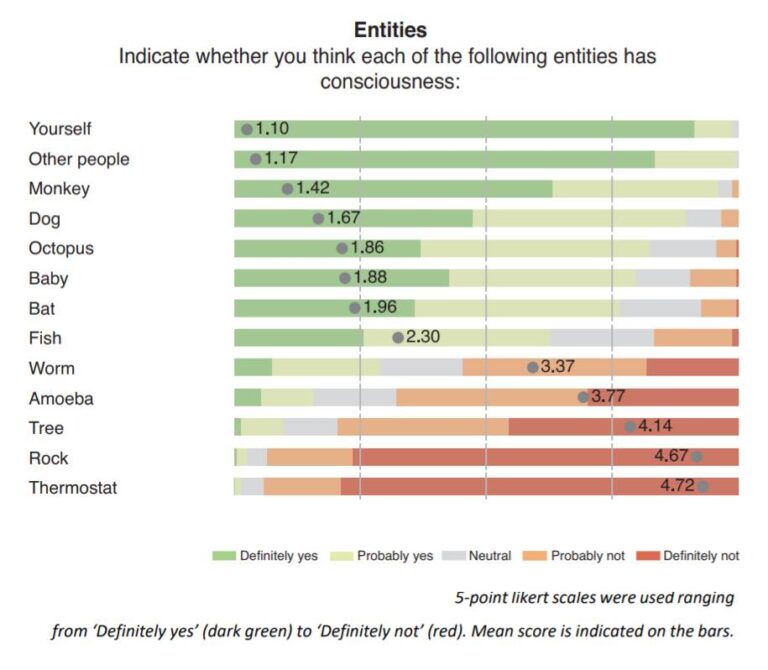

The modern sense of "consciousness" was therefore first found not in Descartes' work - who sometimes used the word in a modern sense, but did not distinguish it as much as Locke would do -, but in Locke's text. However, it has also been argued that John Locke was in fact the first one to use the modern meaning of consciousness in his Essay Concerning Human Understanding, although it remains closely intertwined with moral conscience (I may be held morally responsible only for the act of which I am conscious of having achieved and my personal identity - my self - goes as far as my consciousness extends itself). These are, for instance, conscience, and Bewusstsein. René Descartes has been said to be the first philosopher to use "conscientia" in a way that does not seem to fit this traditional meaning, and, as a consequence, the translators of his writings in other languages like French and English coined new words in order to denote merely psychological consciousness. Medieval writers such as Thomas Aquinas describe the conscientia as the act by which we apply practical and moral knowledge to our own actions. In Christian theology, conscience stands for the moral conscience in which our actions and intentions are registered and which is only fully known to God. Here, conscientia is the knowledge that a witness has of the deed of someone else. The word first appears in Latin juridic texts by writers such as Cicero. In the literal sense, "conscientia" means knowledge-with, that is, shared knowledge. "Consciousness" derives from Latin conscientia which primarily means moral conscience. In common parlance, consciousness denotes being awake and responsive to one's environment this contrasts with being asleep or being in a coma. For instance, how is the presence of consciousness to be assessed in severely ill or disabled individuals? To what extent are non-human animals conscious? At what point in fetal development does consciousness begin? Can machines achieve conscious states? Are today's autonomous and intelligent machines already conscious? These issues are of great interest to those concerned with the ethical treatment of other beings, be they animals, fetuses, or, in the future, machines. Phenomenal consciousness is being something and access consciousness is being conscious of something.Īn understanding of necessary preconditions for consciousness in the human brain may allow us to address important ethical questions. Phenomenal consciousness is a state with qualia.

Some philosophers divide consciousness into phenomenal consciousness, which is subjective experience itself, and access consciousness, which refers to the universal availability of information to processing systems in the brain. It is a subject of much research in philosophy of mind, psychology, neuroscience, and cognitive science. 9.4 Physical Hypotheses about ConsciousnessĬonsciousness is a characteristic of the mind generally regarded to comprise qualities such as subjectivity, self-awareness, sentience, sapience, and the ability to perceive the relationship between oneself and one's environment.3.3 Philosophical criticisms of the concept of consciousness.3.2 The description and location of phenomenal consciousness.3.1 Phenomenal and access consciousness.In the classical Greek tradition, there is a distinction between sophia “wisdom” and phronesis “prudence, practical intelligence”. Out of these, phronesis and sophia are two key subtypes of wisdom. Wisdom has been defined in many different ways, a variety of measurement scales have been developed, and several subtypes of wisdom have been proposed. There appears to be consensus that wisdom is associated with attributes such as compassion, experiential self-knowledge, non-attachment and virtues such as ethics and benevolence. Wisdom or sapience is the ability to think and act using knowledge, experience, understanding, common sense, and insight. The concept is central to the philosophy of animal rights because sentience is necessary for the ability to suffer, and thus is held to confer certain rights. In Eastern philosophy, sentience is a metaphysical quality of all things that require respect and care.

In modern Western philosophy, sentience is the ability to experience sensations (known in philosophy of mind as “qualia”). Eighteenth-century philosophers used the concept to distinguish the ability to think (reason) from the ability to feel (sentience). Sentience is the capacity to feel, perceive or experience subjectively.


 0 kommentar(er)
0 kommentar(er)
